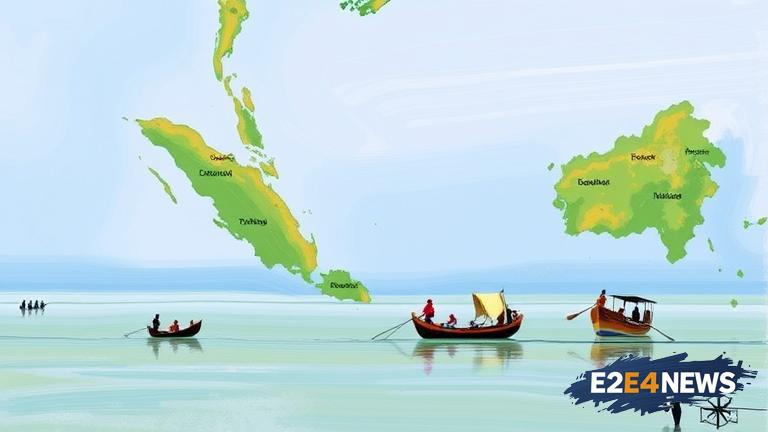Sri Lanka’s eastern region, which was heavily affected by the civil war, is now facing a new challenge in the form of exploitation in the farming and fishing industries. The region, which is known for its rich natural resources, is being targeted by large-scale businesses and corporations that are taking advantage of the local communities and economies. The farming industry, which is a significant contributor to the region’s economy, is being exploited by companies that are buying up land and resources at low prices, leaving local farmers with little to no profit. The fishing industry, which is also a major source of income for the region, is being overfished by large-scale fishing vessels, depleting the fish stocks and affecting the livelihoods of local fishermen. The exploitation of these industries is not only affecting the local communities but also the environment, as the large-scale farming and fishing practices are leading to deforestation, pollution, and habitat destruction. The Sri Lankan government has been criticized for not doing enough to protect the rights of local communities and to regulate the industries. The government has been accused of prioritizing the interests of large-scale businesses and corporations over those of the local communities. The exploitation of the farming and fishing industries in Sri Lanka’s eastern region is a complex issue that requires a comprehensive solution. The government needs to take immediate action to regulate the industries and protect the rights of local communities. This can be done by implementing policies that promote sustainable farming and fishing practices, providing support to local farmers and fishermen, and ensuring that the benefits of the industries are shared equitably among all stakeholders. Additionally, the government needs to take steps to address the environmental impacts of the industries, such as deforestation and pollution. The local communities also need to be empowered to take control of their own resources and to make decisions about how they are used. This can be done by providing training and capacity-building programs, as well as supporting community-led initiatives. The international community also has a role to play in addressing the exploitation of the farming and fishing industries in Sri Lanka’s eastern region. International organizations and donors can provide support to local communities and governments to help them develop sustainable and equitable industries. Furthermore, consumers in other countries can play a role by making informed choices about the products they buy and supporting companies that prioritize sustainability and fairness. The exploitation of the farming and fishing industries in Sri Lanka’s eastern region is a pressing issue that requires immediate attention and action. The government, local communities, and international organizations must work together to develop a comprehensive solution that prioritizes the rights and interests of local communities and promotes sustainable and equitable industries. The future of the region’s economy and environment depends on it. The eastern region of Sri Lanka has a long history of farming and fishing, with many communities relying on these industries for their livelihoods. However, the exploitation of these industries is threatening the very existence of these communities. The large-scale farming and fishing practices are not only affecting the local economies but also the environment, as the natural resources are being depleted at an alarming rate. The government needs to take immediate action to address this issue and ensure that the industries are developed in a sustainable and equitable manner. The local communities need to be empowered to take control of their own resources and to make decisions about how they are used. The international community also needs to play a role in addressing this issue, by providing support to local communities and governments. The exploitation of the farming and fishing industries in Sri Lanka’s eastern region is a complex issue that requires a comprehensive solution. The government, local communities, and international organizations must work together to develop a solution that prioritizes the rights and interests of local communities and promotes sustainable and equitable industries. The future of the region’s economy and environment depends on it. In conclusion, the exploitation of the farming and fishing industries in Sri Lanka’s eastern region is a pressing issue that requires immediate attention and action. The government, local communities, and international organizations must work together to develop a comprehensive solution that prioritizes the rights and interests of local communities and promotes sustainable and equitable industries.





